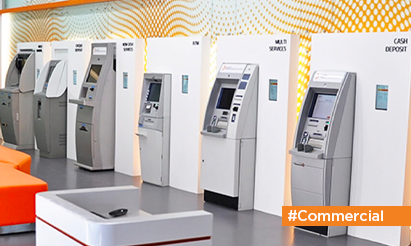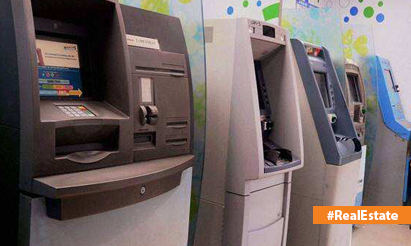Recognizing guaranteed return programmes in commercial ventures!
Assured return programmes’ appear to be an appealing proposition for home purchasers based on their name. When combined with well-known developers, these programmes become popular investment options. Investors are frequently exposed to a variety of guaranteed return schemes offered by real estate developers, which are relevant to commercial assets such as offices or retail stores in business/IT parks, malls, and retail centers. These plans guarantee returns on investments up to a particular percentage, guaranteeing a consistent monthly income. However, because these programmes are mostly accessible in under-construction buildings, investors should look for builders with clean histories and conduct comprehensive studies to have a complete knowledge of the offer at hand.
What exactly are guaranteed returns?
Anything with the slogan “assured returns” implies that the plan guarantees returns from the first day of investment. Such guaranteed return plans are prevalent in the commercial real estate sector, where they are available to both retail and institutional investors. Because commercial developments need significant investment, builders frequently offer a consistent income to the investor while the project is being created. These plans not only draw more investors, but they also create trust by minimising risks. The transaction also includes a capital appreciation component. This means that the property value may progressively rise, making the investment even more advantageous.
The guaranteed return plan pay out may fluctuate from builder to builder. Yet, the majority of them give roughly 10% of the invested capital every year before the project is completed. For example, if a store costs Rs 24 lakh, the builder will want the investor to pay 50% up front, or Rs 12 lakh within one month, plus 10% for project booking. Under the assured return program, the builder will provide 10% of the initial investment (Rs 12 lakh) every year, for a total of Rs 1,20,000 yearly and Rs 10,000 monthly till the project is completed. The rewards rise as the investor pays more based on the development of the project.
The following are the scheme’s main features:
- The buyer makes an initial investment of a certain amount.
- The developer pledges to give guaranteed returns at a predetermined percentage starting on a specific date.
- The rate of return is consistent among investors.
- These plans are often available on assets such as IT parks, business parks, workplaces, outlet malls, and retail stores.
Why do builders provide guaranteed return schemes?
Another issue that an investor may have is why these builders provide such plans and what is in store for them. When a commercial real estate developer requests for a loan from a bank or financial institution, the interest rate is relatively high, ranging between 18 percent and 30 percent or more. As a result, as compared to banks, builders find it easier to raise financing from individual investors or property hunters at a low annual percentage of 10-12 percent. Most significantly, with such a strategy, a maker may fast sell merchandise while still profiting.
‘How can I invest in commercial real estate with guaranteed returns?’
- Investing in commercial real estate with guaranteed returns is a common investment option for many individuals seeking passive income. Consider the following steps:
- The first step is to examine the commercial real estate market and find possible properties that meet your investment objectives and requirements. Look for buildings with good occupancy rates, consistent renters, and an appealing location that will attract tenants.
- Find a reputable developer or real estate firm: Look for a reputable developer or real estate firm with an established history of providing commercial properties with guaranteed profits. Examine their reputation, track record, and market experience.
- Select the appropriate investment structure: There are several investment structures available, including direct investment, pooled funds, and real estate investment trusts (REITs). Select the option that best meets your investing objectives, risk tolerance, and financial position.
Advantages of Investing in Commercial Real Estate with Guaranteed Returns
Regular income: Investing in commercial buildings with guaranteed returns can provide a consistent and stable revenue source. Returns are normally paid out monthly or quarterly and are fixed in amount, giving investors with a predictable income. This might be particularly enticing to retirees or anyone seeking a consistent source of passive income.
Returns that are predictable: With guaranteed returns, investors know what their returns will be and for how long, giving them assurance and predictability. This assists investors in better planning their money and investing strategy, particularly if they have specified financial goals to pursue.
Low risk: Considering the profits are ensured by the developer or real estate business, investing in commercial buildings with guaranteed returns is often considered low risk. When opposed to other investing alternatives, such as stocks or mutual funds, the danger of losing your money is comparatively minimal. However, it is crucial to note that there is still some risk involved, such as changes in market circumstances or tenant turnover, so before making any investment decisions, investors should complete their due diligence and examine the risks.
What if the developer fails to meet the guaranteed returns on commercial properties?
If a developer fails on guaranteed returns on commercial buildings, the investor may be in a bad situation. The first step in such circumstances is to analyse the agreement signed between the investor and the developer to comprehend the legal duties and measures available.
In accordance with the particulars of the agreement, the investor may have legal remedies against the developer. In the event of a developer default, the agreement may include provisions for fines or damages. To enact the provisions and limitations of the agreement, the investor might go to court or obtain legal assistance.
If the developer declares bankruptcy or is unable to pay the promised profits, the investor may be forced to take legal action to reclaim their investment. To recover the investment amount, the investor may need to submit a claim with the bankruptcy court or seek the assistance of a lawyer.
Before investing in any commercial property, it is critical to undertake due diligence, which includes evaluating the developer’s track record, financial health, and reputation. Investors should also thoroughly read the agreement’s terms and conditions and seek expert assistance if necessary.
Before participating in such initiatives, investors should perform research and verify the lawfulness, terms, and circumstances of such schemes. It is critical that the project be registered with the Real Estate Regulatory Authority (RERA). The Securities and Exchange Board of India (SEBI) has issued a warning about unregulated deposits, referring to them as Ponzi schemes. Buyers may not have a solid legal position if the developers fail to meet these guaranteed returns. The sole legal option is to file a case in civil court, which can be a lengthy procedure.
Having stated that, there are different forms of guaranteed return plans, including loan interest payment. Investors should pick trustworthy developers when investing in monthly income-generating assets, and they should get legal counsel before investing in such projects.
Disclaimer: The views expressed above are for informational purposes only based on industry reports and related news stories. PropertyPistol does not guarantee the accuracy, completeness, or reliability of the information and shall not be held responsible for any action taken based on the published information.




